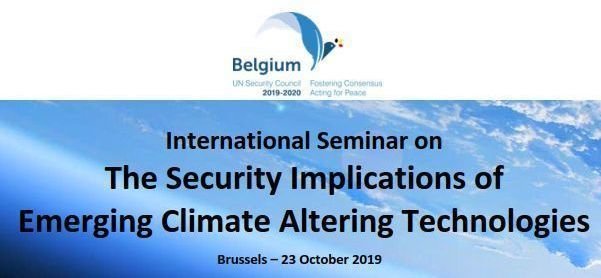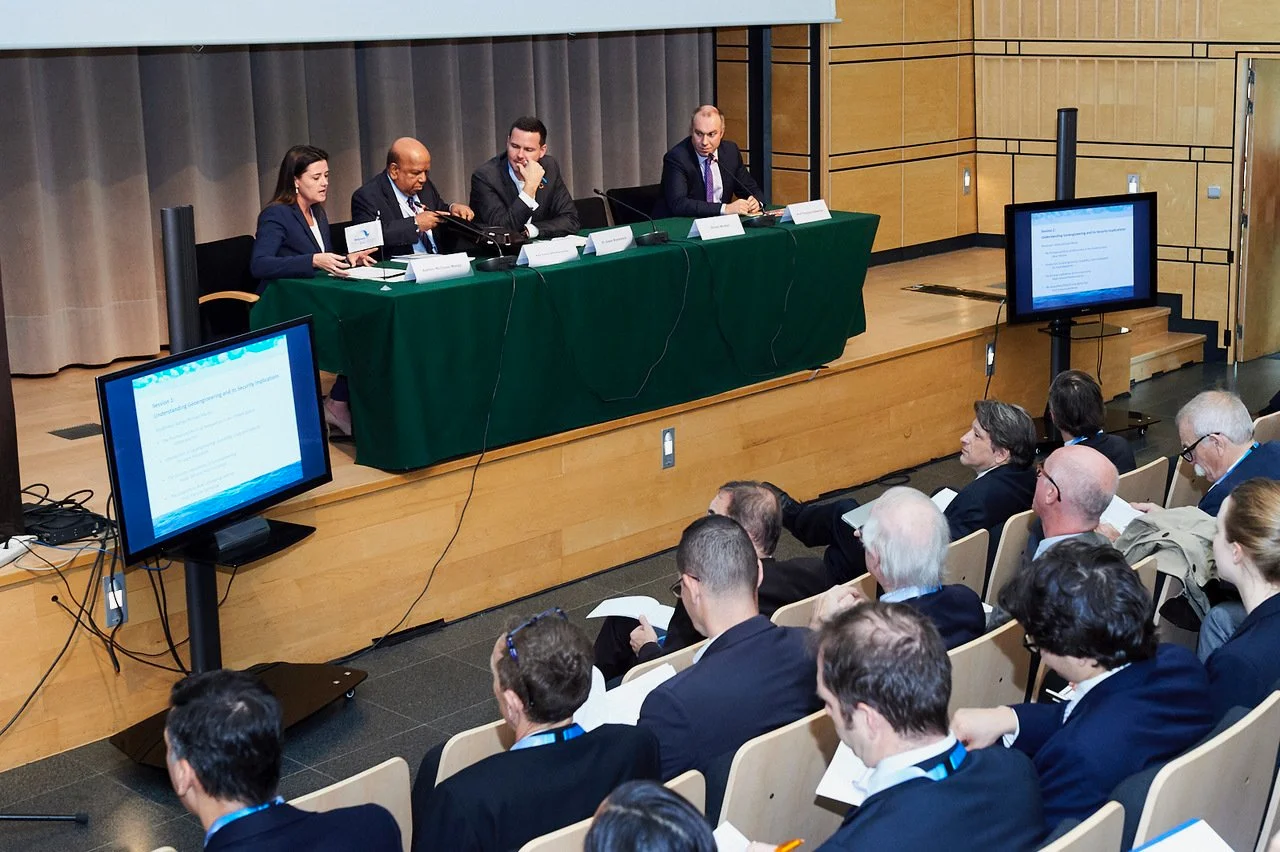The Security Implications of Emerging Climate Altering Technologies

By R.A. Kingham
Brussels, 23 October 2019
Addressing the Climate and Security nexus is one of Belgium’s priorities for its 2019-2020 mandate as an elected member of the United Nations Security Council. Climate Change is a threat multiplier that is already having major impacts on international peace and security.
Recently more and more scientific research is aimed at mitigation alternatives through deliberate and large-scale intervention in the Earth's climate system or “geoengineering”, for example through solar radiation modification.
The Belgian Federal Public Service of Foreign Affairs partnered with several others to organize a seminar that took stock of current academic thinking on the security implications of these unprecedented techniques. Several representatives of IES and the Global Military Advisory Council on Climate Change (GMACCC) took part in the half-day seminar held at the Belgian Royal Military Academy.

The event addressed the frameworks for governing geoengineering from both a security and climate perspective. The aim was to gather stakeholders from different backgrounds to stimulate an open exchange of ideas, to raise awareness and to contribute to further policy development.
Specific questions addressed included:
- How might geoengineering help mitigate the climate crisis?
- What are the potential security consequences from efforts to use geoengineering for this reason?
- Are there adverse security risks of geoengineering?
- How should the precautionary principle operate to assess the potentially unintended consequences of geoengineering?
- What legal and policy frameworks should be considered for governing geoengineering from both a security and climate perspective?
For more information, the programme, presentations, etc. visit the event page.